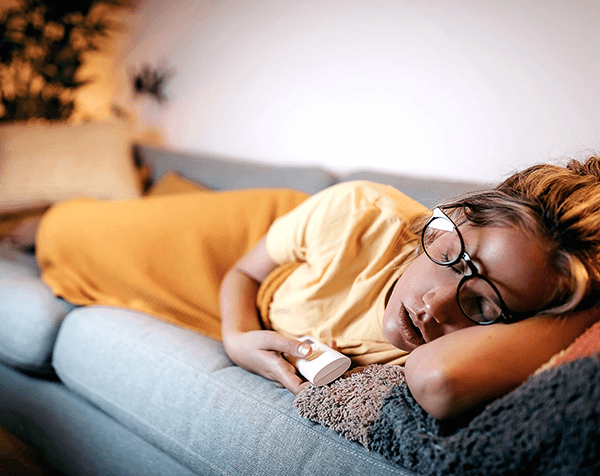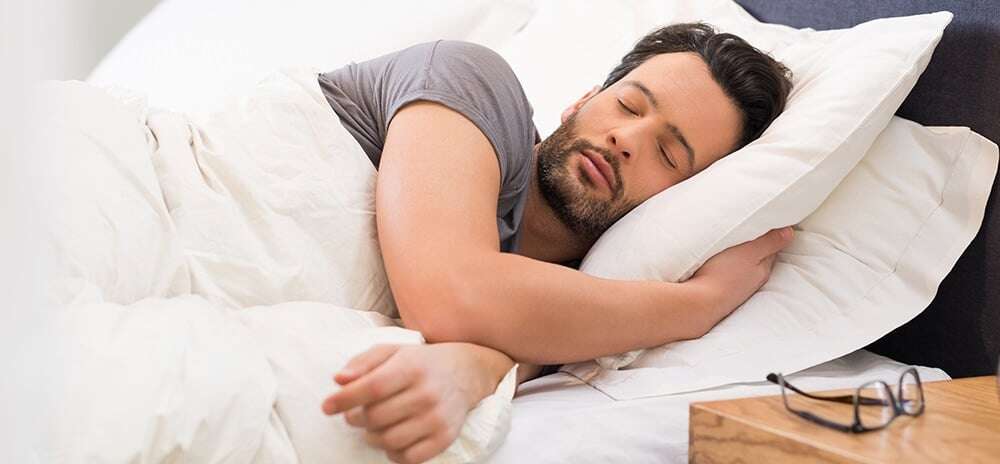Sleep is one of the fundamental pillars of good health. It is important for the body's restoration, cognitive functioning, and emotional well-being. However, for many people, achieving quality sleep can be a real struggle and thinking ahead to the week’s responsibilities can make going to sleep even more of a challenge. Fortunately, there are ways to combat the Sunday Scary and obtain high quality sleep!
What is Sunday night anxiety?
Sunday night anxiety is a term used to describe the feeling of scary apprehension and stress that many people experience before the start of a new work week. It is a common phenomenon that affects people of all ages, genders, and professions. We label it here as the Sunday Scaries but really this can occur on any day before you start your work or study. This feeling of anxiety can range from mild to severe, and it can be accompanied by physical symptoms such as increased heart rate, sweating, and restlessness. Sunday night anxiety can make it difficult to fall asleep, leading to insomnia and other sleep disorders, plus making the work week seem even more overwhelming than it needs to be. Fortunately, there are steps you can take to address Sunday night anxiety and promote restful sleep if you can believe you have it.
Why do people get the scaries on Sunday night?
Several factors contribute to this Sunday night anxiety. For many people, it is a reminder that the weekend is over, and that they must return to work or school the following day. It can be challenging to switch from our relaxed and leisurely weekend mode to the more structured and demanding workweek routine! Additionally, people may have unfinished work or pending deadlines that add to their stress and anxiety.
Mental health factors for sleep
Mental health conditions such as depression and anxiety can also significantly impact sleep quality and make the Sunday night anxiety more apparent. People with depression often experience insomnia, hypersomnia (a term for excessive sleepiness), or both. Anxiety, on the other hand, can cause difficulty in falling asleep and staying asleep.
Stress is another common mental health factor that can contribute to sleep problems. When we are stressed, our body releases hormones such as cortisol, which can interfere with our ability to even fall asleep and get good quality sleep.
CBT-I as a treatment option
If you suffer with insomnia symptoms or find the Sunday Scaries are affecting you week to week, then consider undertaking Cognitive Behavioural Therapy for Insomnia (CBT-I), a therapy recommended as the gold standard, first line of insomnia treatment.
According to the Sleep Health Foundation, CBT-I is an evidence-based treatment for insomnia that has been shown to be effective for many people. It is a short-term, goal-oriented therapy that can be delivered to patients face to face or online through a digital program. CBT-I focuses on changing negative thought patterns and behaviours that contribute to insomnia. This is super helpful as the best way to treat insomnia is to address its underlying causes. CBT-I can help people with insomnia develop good sleep habits, such as creating a relaxing sleep environment and establishing a regular sleep schedule. Additionally, CBT-I can help people with Sunday night anxiety by teaching them coping strategies to manage stress and anxiety. These strategies may include relaxation techniques such as deep breathing, progressive muscle relaxation, or guided imagery. Moreover, CBT-I can help people develop a positive mindset towards sleep, reducing the fear and worry associated with insomnia. 1
We have a digital CBT-I program called somnio. somnio can help you understand your sleeping problems; handle racing thoughts; learn better relaxation techniques for you to fall asleep faster; and optimise your sleep times. somnio was clinically designed and is worked through over a 10-week period in the comfort of your own home.
In conclusion, Sunday night anxiety can contribute to ongoing sleep problems such as insomnia… and mental health factors such as depression, anxiety, and stress can exacerbate the situation. CBT-I is an evidence-based treatment that can help you to develop good sleep habits, manage sleep-associated stress and anxiety, and develop a positive mindset towards sleep. If you are struggling with sleep, we encourage you to seek help and take steps towards achieving better sleep. A chat with one of our sleep coaches2 could be your first step towards a better night's sleep. Remember, quality sleep is essential for your physical and emotional well-being, and so there is no need to struggle alone.
.webp?width=1158&height=143&name=Combined%20logo%20-%20Ecom%20Main%20300x200%20(1).webp)




